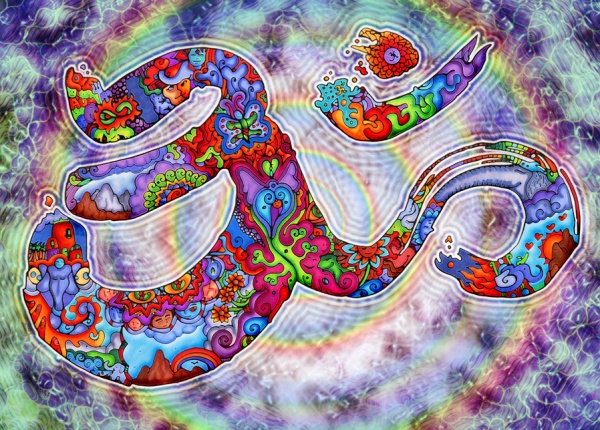In evolving standards of conduct and shaping values, we have to take into consideration the variety and complexity of human life and nature.
The Dharma, at once religious law of action and deepest law of our nature, is not, as in the Western idea, a creed, cult or ideal inspiring an ethical and social rule; it is the right law of functioning of our life in all its parts. The tendency of man to seek after a just and perfect law of his living finds its truth and its justification in the Dharma. Everything indeed has its dharma, its law of life imposed on it by its nature; but for man the dharma is the conscious imposition of a rule of ideal living on all his members. Dharma is fixed in its essence, but still it develops in our consciousness and evolves and has its stages; there are gradations of spiritual and ethical ascension in the search for the highest law of our nature.
All men cannot follow in all things one common and invariable rule. Life is too complex to admit of the arbitrary ideal simplicity which the moralizing theorist loves. Natures differ; the position, the work we have to do has its own claims and standards; the aim and bent, the call of life, the call of the spirit within is not the same for everyone: the degree and turn of development and the capacity, adhikara, are not equal. Man lives in society and by society, and every society has its own general dharma, and the individual life must be fitted into this wider law of movement. But there too the individual’s part in society and his nature and the needs of his capacity and temperament vary and have many kinds and degrees: the social law must make some room for this variety and would lose by being rigidly one for all.
The man of knowledge, the man of power, the productive and acquisitive man, the priest, scholar, poet, artist, ruler, fighter, trader, tiller of the soil, craftsman, labourer, servant cannot usefully have the same training, cannot be shaped in the same pattern, cannot all follow the same way of living. All ought not to be put under the same tables of the law; for that would be a senseless geometric rigidity that would spoil the plastic truth of life. Each has his type of nature and there must be a rule for the perfection of that type; each has his own proper function and there must be a canon and ideal for the function.
There must be in all things some wise and understanding standard of practice and idea of perfection and living rule, – that is the one thing needful for the Dharma. A lawless impulsion of desire and interest and propensity cannot be allowed to lead human conduct; even in the frankest following of desire and interest and propensity there must be a governing and restraining and directing line, a guidance. There must be an ethic or a science, a restraint as well as a scope arising from the truth of the thing sought, a standard of perfection, an order. Differing with the type of the man and the type of the function these special dharma’s would yet rise towards the greater law and truth that contains and overtops the others and is universally effective. This then was the Dharma, special for the special person, stage of development, pursuit of life or individual field of action, but universal too in the broad lines which all ought to pursue.
The universal embracing dharma in the Indian idea is a law of ideal perfection for the developing mind and soul of man; it compels him to grow in the power and force of certain high or large universal qualities which in their harmony build a highest type of manhood.
– Sri Aurobindo






























